OC Transpo still can't say what's causing the leaks plaguing LRT stations
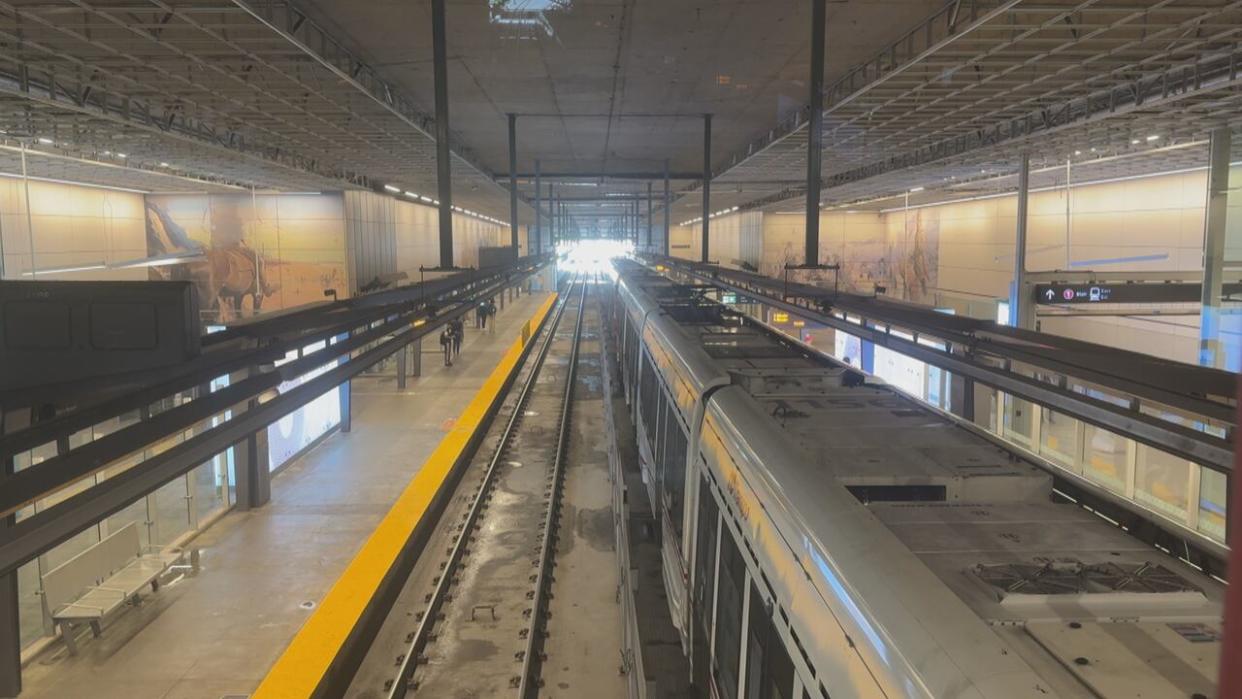
The corrosion found behind ceiling tiles over the last week was only the latest issue with the aging St-Laurent tunnel, but inspectors could not have found the problem while repairing fallen concrete in January — because they never looked for it.
On Wednesday, OC Transpo staff said the issue was caught last Friday when someone conducting a routine visual inspection noted ceiling tiles suspended over the platform were discoloured.
A closer look found the steel rods holding them up were corroding.
I'm trying to maintain public confidence and trust in the system. Here's another issue in the same tunnel. - Coun. Riley Brockington
"There were also areas of concern related to the concrete roof slab," explained Richard Holder, the city's engineering director.
"That concern was precipitated by discolouration of the concrete, by signs of some visible cracking and efflorescence, which is a calcium buildup that looks like a stalactite that was dripping down from the top of the roof slab."
Engineers were confident enough to reopen the station Wednesday morning, although riders will notice a thin mesh has been added above platform boarding areas to protect them from falling concrete debris.
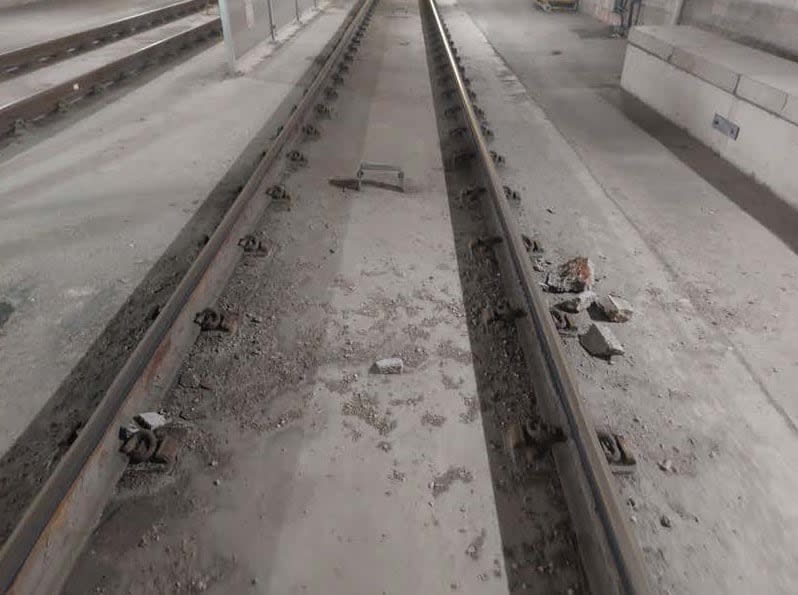
In this photo attached to an internal City of Ottawa email, chunks of concrete are seen along the train tracks at St-Laurent LRT station on Jan. 2, 2024. Staff say followup inspections focused on the tunnel and did not include the platform areas where issues were spotted last week. (City of Ottawa freedom of information request)
Ottawa city councillors expressed frustration with the situation during an online briefing, with some saying the city needs to find a permanent solution to these issues if OC Transpo wants to regain the trust of riders.
"This is now a second issue in less than half a year," said Coun. Riley Brockington. "I keep telling people the tunnels are safe, the infrastructure is safe. I'm trying to maintain public confidence and trust in the system. Here's another issue in the same tunnel."
Tammy Rose, the city's infrastructure general manager, underscored that the "structure is safe."
But she told Brockington the city and Rideau Transit Group, which is paid to look after the Confederation Line, will take another look at its precautionary maintenance routine.
Skipped inspection scrutinized
The city skipped the last full inspection of the tunnel infrastructure, which was set to happen in 2022 according to the Ontario Structure Inspection Manual (OSIM).
CBC obtained the 2020 OSIM inspection reports and images showing water damage, corrosion and "concrete delamination" — the separation of a thin top layer closest to the roof's surface.
Then in January, concrete debris was discovered on the tracks prompting a partial shutdown.
"Obviously this is concerning," Coun. Shawn Menard said to staff. "I really want to know why we were told in April that this was in compliance and had been inspected, and was essentially good to go, when we are seeing this issue just one month later."
Rose said the issues from January and the recent concerns are not related.
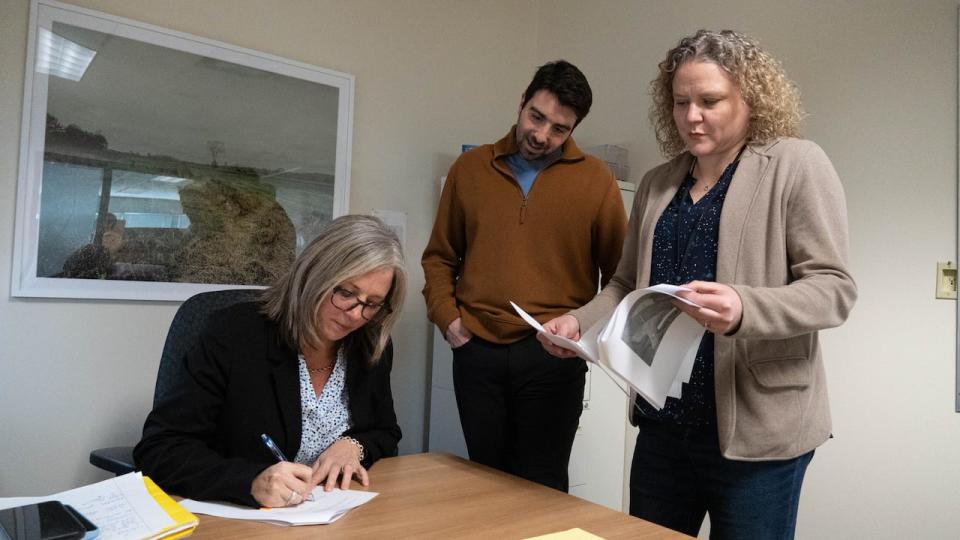
Tammy Rose, seated, general manager of infrastructure and water services at the City of Ottawa, said the station infrastructure is safe. (Jean Delisle/CBC)
The earlier problem stems from the advanced age of the structure, which was built in 1983 for buses on the Transitway. The latest issue was caused by leaks.
"Water infiltration is something that has been noted for a while now. We have records dating back to 1996," she said.
Susan Johns, director of asset management, later told CBC that issues with ceiling tiles and corrosion noted in the 2020 reports were dealt with through the $6.8-million project aimed at finding a final solution to long-standing leaks.
That 20-month project failed to uncover where water is coming from, however.
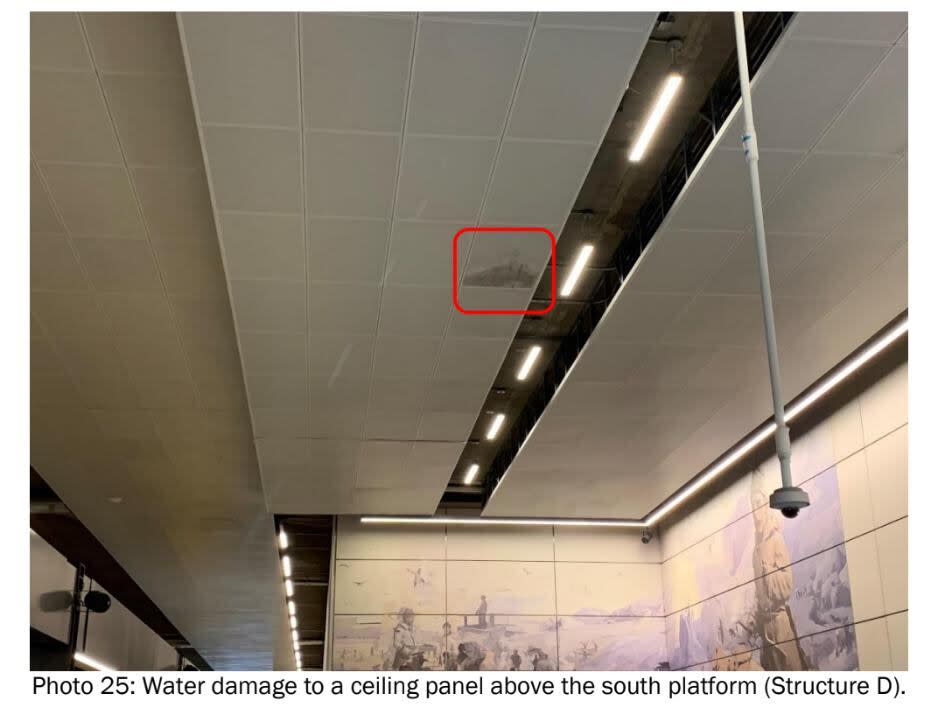
This image was included in the 2020 OSIM inspection report, obtained by CBC. The report noted that the ceiling had sustained water damage above the south platform. Similar damage prompted several days of inspections over the last week. (City of Ottawa freedom of information request)
Menard pressed for answers, asking why inspectors didn't find the issues on the platform when they were doing safety checks earlier this year.
"Back in January, the primary goal was to get the service back up and running," said Rose. "So the inspections that were done were focused on that section, and we also knew that we were going to come back later this year very soon to conduct the full OSIM inspection."
She also emphasized that the 2020 inspection found 95 per cent of the infrastructure was in good repair.
Who pays for this?
Further complicating the issue is the fact that the City of Ottawa bears more responsibility for the tunnel since it predated the LRT.
The Rideau Transit Group is only responsible for its retrofits.
When issues happen on other parts of the line, RTG bears full responsibility for repairs and the city is able to make reduced maintenance payments during outages.
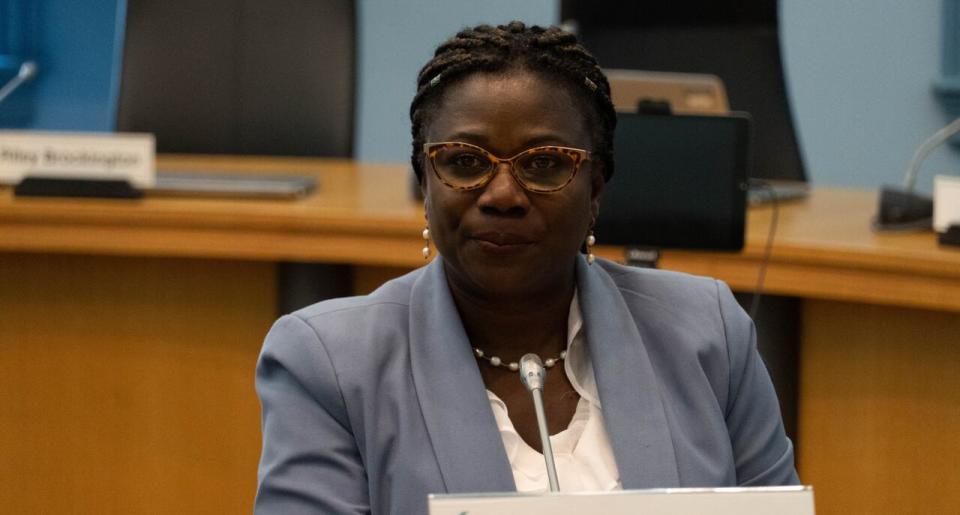
Renée Amilcar, OC Transpo's general manager of transit services, says teams at the city will be looking for ways to further improve inspections. (Jean Delisle/CBC)
OC Transpo chief Renée Amilcar said repairs related to the corroded brackets would fall under RTG's financial responsibilities, since it should have known about the possibility of leaks and used better materials.
The cost of tunnel inspections will be borne by the city, however.
Amilcar said she'll work with Rose's team to adapt inspections to be "more proactive."
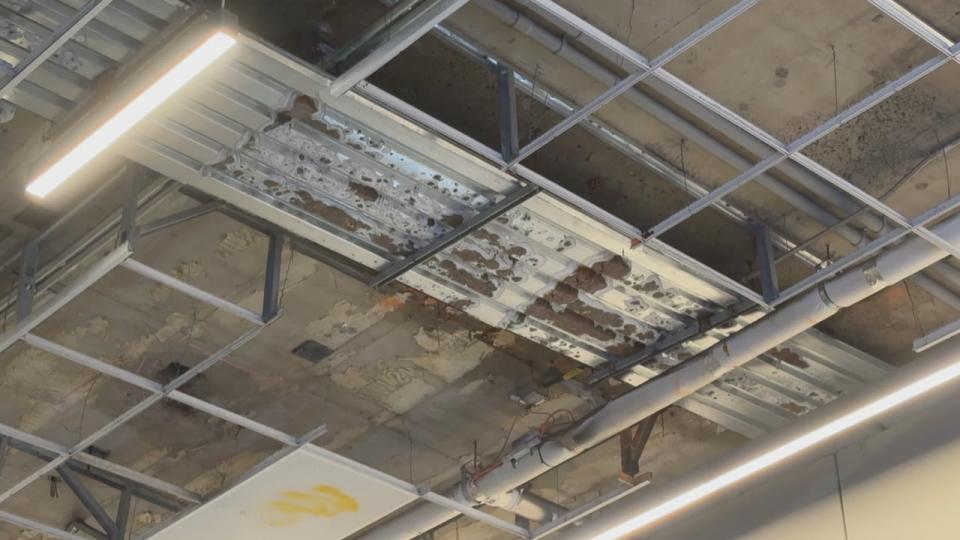
Amilcar says Rideau Transit Group will be responsible for repairing corrosion at St-Laurent station. (Mathieu Deroy/CBC)

